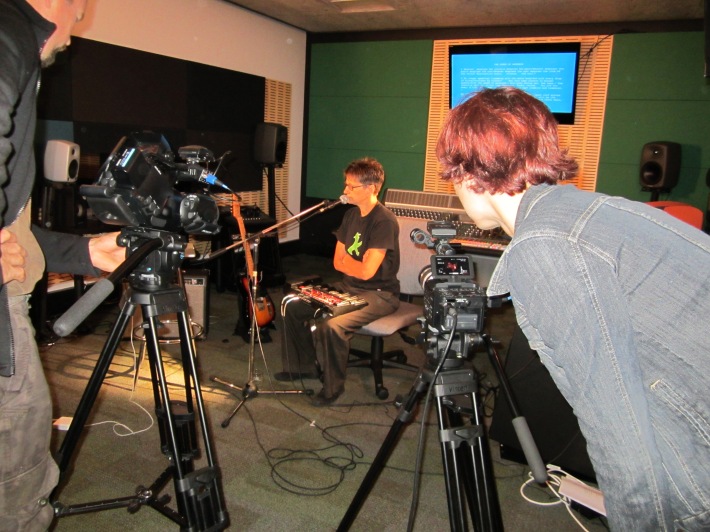This fortnight living in a bus in a old mate’s garden-by-the-sea is a small commitment; I’m here partly because she’s working on an idea that includes portraits and dress-ups and conversations with other old mates and me. But, alas, it’s disrupted my commitment to finishing the Throat of These Hours radio play by the end of September (followed by the stage play at end November). I enjoy the bus and the sociability, and much of my time’s my own, but the wheels of my work day don’t turn. I planned to go home with the third draft good-to-go for a reading-with-actors. I don’t think that’ll happen.
But the good news is that I now have three posts on the Muriel Rukeyser Living Archive site. I like writing them because they make me think about aspects of what I’m writing that otherwise I’d take for granted. And re-examine where I’m going. They’re also an opportunity to celebrate the beautiful women who contribute to the plays’ development, especially Christine White as the composer and the actors Madeline McNamara and Lorae Parry, who have read twice for me – some of the stage play on film and all of the second draft of the radio play.
Here’s the first one, with clips of Chris White’s composition-in-progress for Muriel Rukeyser’s The Speed of Darkness and a scene between the two main characters, played by Madeline and Lorae. The second one, ‘Throat of These Hours: The Verifiable & The Unverifiable’ is about my research process and includes a clip of Chris’ composition-in-progress for Muriel Rukeyser’s Then. And the latest one, ‘From The Shaky Isles’, reports on the reading of the second draft of Throat of These Hours as a radio play, follows the latest large earthquake in Wellington and refers to some of the subtext to the work. It includes Estuary, a poem by Hinemoana Baker and Chris, and a clip of them singing Beautiful Thing, a tribute to New Zealand writer Jacquie Sturm.
The next confirmed Throat of These Hours ‘event’ is an interview on Wellington’s lesbian radio programme on Access Radio, with Prue Hyman, Sunday 22 September.


